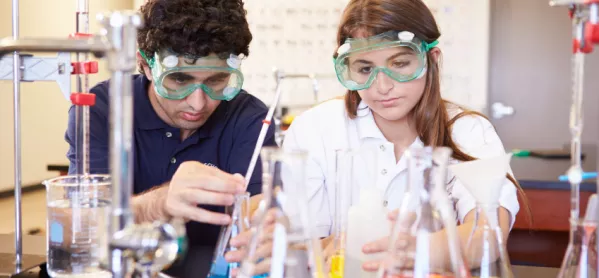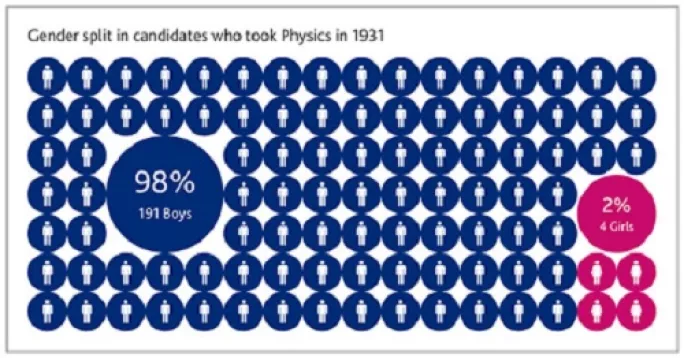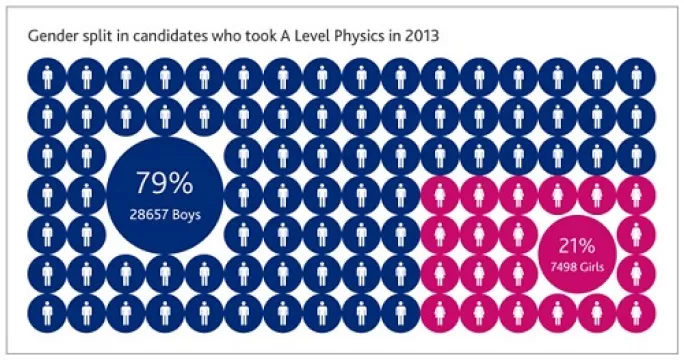Physics gender gap will take more than a century to close
Share
Physics gender gap will take more than a century to close
https://www.tes.com/magazine/archive/physics-gender-gap-will-take-more-century-close

It could be more than a century before the disparity between the numbers of boys and girls taking A-level physics is eliminated, a conference will hear this week.
Statistics from the archives of exam group Cambridge Assessment show that, in 1931, 2 per cent of the board’s physics candidates were girls:

By 2013, 21 per cent of OCR’s A-level physics candidates were girls:

Assuming that change continues to progress at the same rate, there will not be an even split between boys and girls taking the subject until the year 2138, researchers from Cambridge Assessment will tell the conference.
Boys also form the greater proportion of entries for all GCSE science subjects. However, the researchers will point out that girls are more likely to perform well in GCSEs.
The academics will conclude that the imbalance of sexes should be a bigger priority for policy-makers than the performance of summer-born children.
These statistics will be discussed at a conference called Gender differences: the impact of secondary schooling - boys or girls, who’s winning?, to be held in London this Thursday.
The conference will also hear from education ministers from Mauritius, Namibia and Swaziland, who will discuss their strategies for tackling sex disparities at school. And academics will talk about the differences between boys’ and girls’ performances in modern foreign language exams.
Tim Oates, Cambridge Assessment research director, said: “Girls tend to work conscientiously in school, and their attainment exceeds boys’ in almost all areas. But why should they bother?
“They get directed into subjects which are stereotyped, signals from the labour market deter them from a wide range of high-status occupations… It’s not just a question of social justice. It’s a gross waste of talent that adversely affects our economy.”
A Department for Education spokesperson said: “We are encouraging more young people - especially girls - to study STEM subjects, giving them the opportunity to develop the knowledge and practical skills which will help them succeed.
“We are already seeing results, with the number of A level entries for women in science and maths up by 12,000 since 2010.”
You've reached your limit of free articles this month. Subscribe for £1 per month for three months and get: